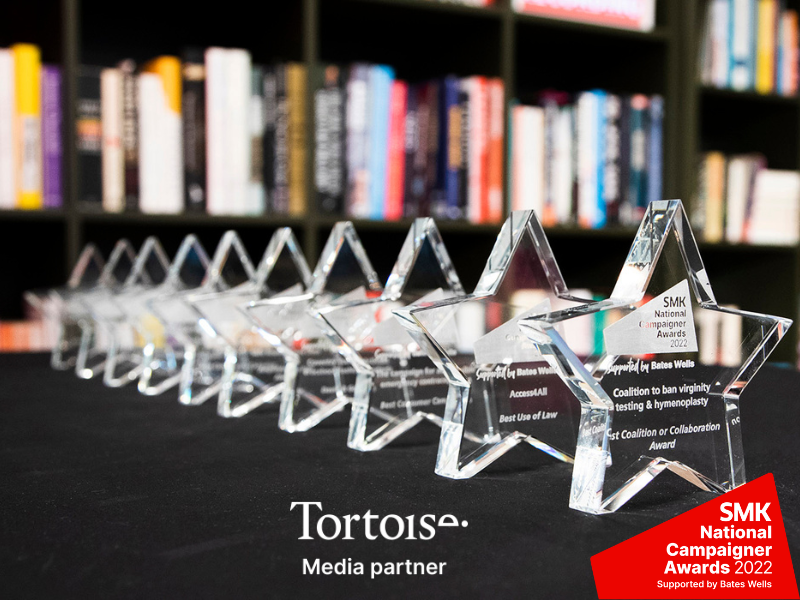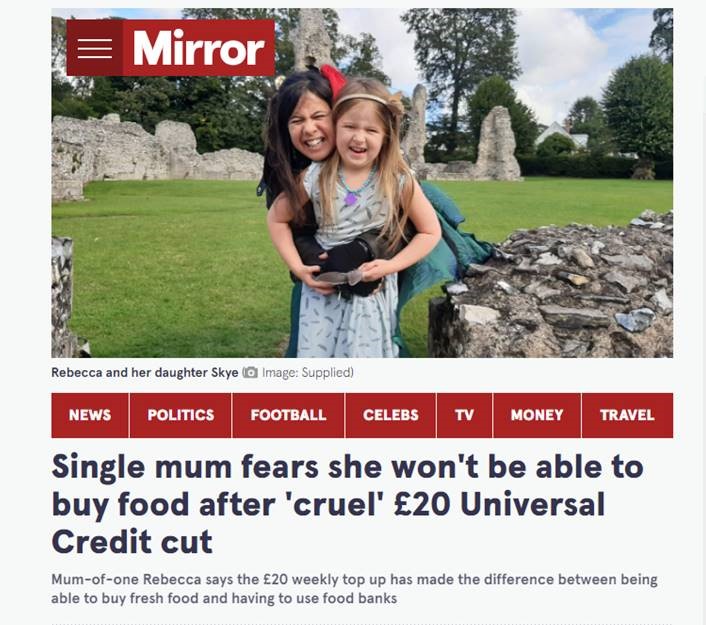
MP, journalists and commentators were regularly hearing about the real-life impact of cutting money in Universal Credit, and it continued to be a talked about on breakfast sofas and in The Commons.
The Campaign
After increasing Universal Credit by £20 per week in 2021 as a response to the pandemic, the UK Government planned to cut it again, despite it being a lifeline to many low-income families and after years of cuts and freezes to social security since the 2008 crash.
The Save the Children Parent Campaigner group campaigned over a year to prevent what is regarded as the biggest overnight social security cut since World War Two.
Their role was central in highlighting the impact it would have on children’s and families’ lives. The Government was asked by parent campaigners to #KeepTheLifeline via continuous media pressure, evidence provision and public mobilisation, all while they faced the combined pressures of increased cost of living, home schooling with limited resources, and job insecurity.
They continue to campaign for better social security in the face on the ongoing cost-of-living crisis which risks pushing even more children into poverty.

Parent Campaigner, Becka sharing her story to help put pressure on the Chancellor.
I was directly affected by the outcome of the #KeepTheLifeline campaign so it means a great deal. The whole process was really empowering and, although challenging at times, ultimately very enjoyable. I’m really proud of all the parents and everything they did to improve the lives of the most vulnerable people and families in our country. I’m delighted our campaign was acknowledged by the SMK National Campaigner Awards 2022, because I believe wholeheartedly in the work we are doing; speaking from lived experience to improve opportunities for those who need it most, so that everyone can benefit.”
Rebecca, parent campaigner

Parent Campaigner, Becka sharing her story to help put pressure on the Chancellor
I was directly affected by the outcome of the #KeepTheLifeline campaign so it means a great deal. The whole process was really empowering and, although challenging at times, ultimately very enjoyable. I’m really proud of all the parents and everything they did to improve the lives of the most vulnerable people and families in our country. I’m delighted our campaign was acknowledged by the SMK National Campaigner Awards 2022, because I believe wholeheartedly in the work we are doing; speaking from lived experience to improve opportunities for those who need it most, so that everyone can benefit.”
Rebecca, parent campaigner
The Change
The parents’ campaign remained in the news for over a year. They talked to the media, pushed out social media content, encouraged claimants to write to their MP, submitted a petition of over 10,000 signatures, and gave oral evidence to the Work and Pensions Select Committee (one MP said it was ‘the most compelling evidence I’ve ever heard on the issue’).
Their campaigning energy meant that MPs, journalists and commentators could not avoid hearing about real-life impact of the Universal Credit cuts. It was a regular item on breakfast TV and in the Commons, and their powerful argument became a commentary about our economy, rather than handouts, as coverage hit the Financial Times.
When the Leader of the Opposition Keir Starmer needed a strong argument for PMQs, his team contacted Save the Children to hear from the parents.
Crucially, it meant that MPs were unable to argue that they weren’t hearing from claimants about the issue.
The Chancellor went ahead with the cut, but knew he would have to offer struggling families an alternative because of this pressure. This resulted in significant changes to Universal Credit around the taper rate and work allowance, which will pull over half a million families out of poverty.
The Future
Family finances are under even more strain with inflation, energy, food and everyday essential price increases.
Parent Campaigners and Save the Children have called on the Government to do more to protect children and families most affected by the recent Spring Statement. They will fight for better targeting of the hardest hit and improvements to the system, particularly how childcare is paid.
They will also combat the stigma around those experiencing poverty in the UK, to tell a different story about child poverty and gain broad public appeal public that creates a positive culture change.
Who else was involved?
The Keep the Lifeline coalition included over 50 organisations collaborating to ensure the most vulnerable in society were shielded from the impact of the pandemic. It included The Joseph Rowntree Foundation, Trussell Trust, Child Poverty Action Group, The APLE collective, Turn2Us, Children’s Bureau and many more.


